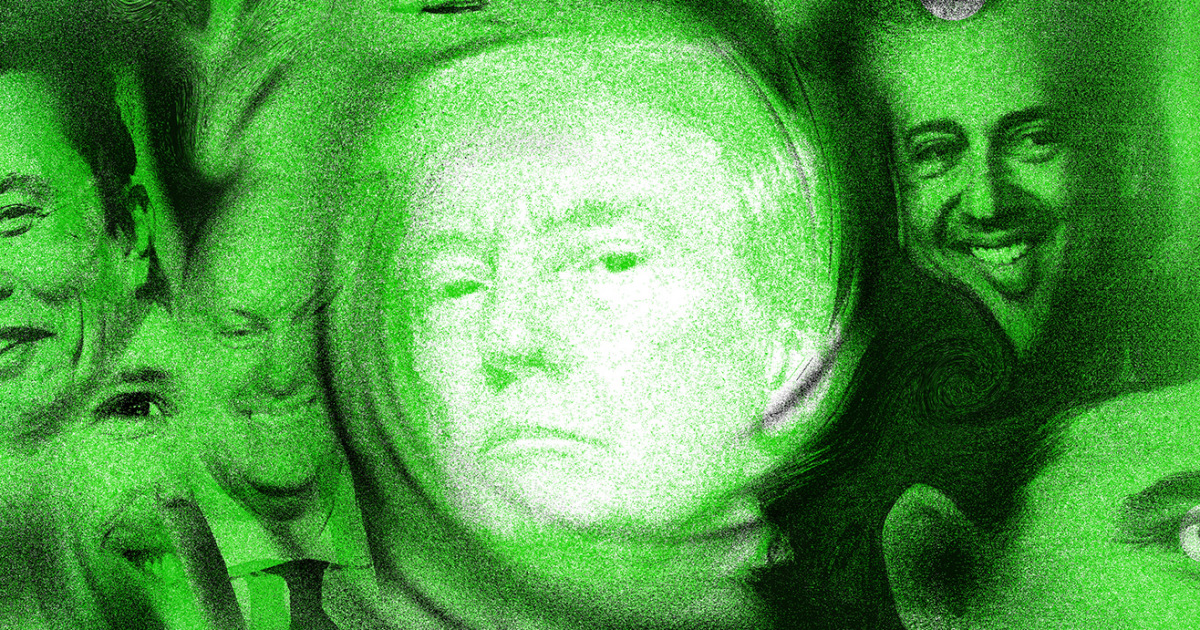Trump is surrounding himself with a tight-knit group of right-wing tech barons

Tech Titans Infiltrate Trump's Second Term
The Rise of a Tech Faction
"They've turned profits into power," declared Rob Lalka, author of the book "The Venture Alchemists." He describes the unique characteristics of the tech entrepreneurs surrounding Trump, including their wealth, skepticism, and online personas.
"That contrarianism doesn't come out of nowhere. It comes from real-life experiences they had as college students," he said.
This group has coalesced within the tech industry and is poised to transform Washington in the coming years.
Trump's Embracing of Tech
The Trump transition team emphasizes the synergy between their agenda and the tech leaders they've brought on board. Spokesperson Brian Hughes states that Trump's policies will restore innovation, reduce regulation, and celebrate free speech.
Silicon Valley's Investment in Trump
Venture capitalists, unlike tech incumbents like Meta and Google, have shown notable support for Trump. Professor Neil Malhotra explains that this group prioritizes growth over inclusivity and has a history of upending the status quo.
"The contrarian culture of Silicon Valley and venture has pushed back against big corporate ideas," he said.
The Influence of Tech on Past Administrations
Trump's relationship with the tech industry differs from Obama's, who sought guidance from executives like Eric Schmidt. Nathan Leamer observes that tech leaders today are aligning with Republican views rather than driving innovation.
"Tech is watching Republican leaders and realizing that they have to get in the game," he said.
Trump's Tech-Heavy Appointments
Beyond Cabinet-level positions, tech figures are appearing in influential roles throughout Trump's administration. Examples include Jacob Helberg at the State Department, Jim O'Neill at Health and Human Services, and Emil Michael at the Pentagon.
Also notable are Trump's appointments to agencies like the Federal Communications Commission and the Securities and Exchange Commission, which are led by individuals sympathetic to the tech faction.
The Power of Marginalization
While tech giants may support Trump, experts question their ability to wield significant power. Part-time positions and limits to their influence could render them subordinate to the broader administration.
"That's going to really limit their power," said Professor Malhotra.
The Tech Agenda: Opportunities and Uncertainties
Trump's tech appointees are expected to prioritize deregulation, reduced constraints on AI development, eased environmental approvals, and corporate tax cuts.
Despite potential upsides, some believe Trump may face legal challenges in his efforts to control social media and other tech platforms.
The Motivation: Power or Profit?
The question of whether Trump's tech allies seek personal gain has been raised, with some pointing to the increased wealth of figures like Elon Musk.
However, Republican consultant Nathan Leamer believes their motivation is more complex: they see a chance to prove their ideas and shape the future of the country.
"I think they see it as a chance to put their ideas into practice," he said.